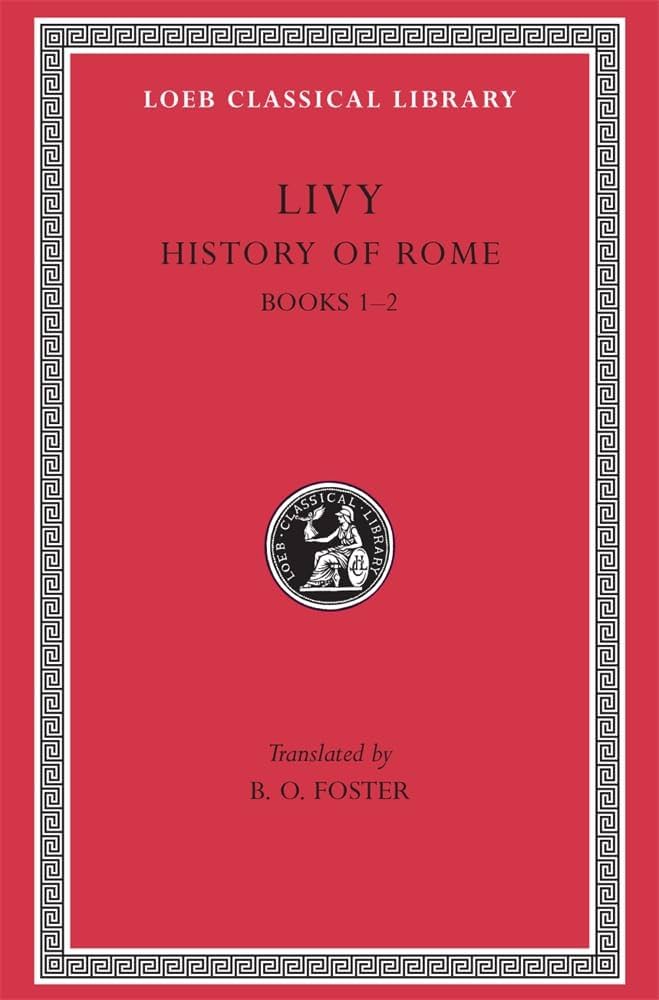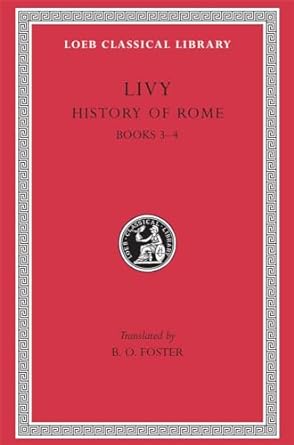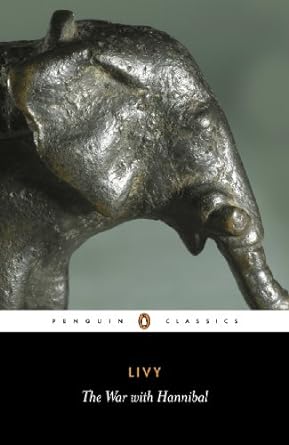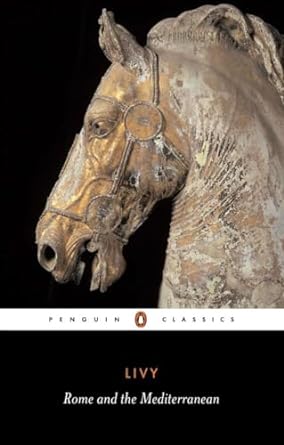Original language: Latin.
Livy was Rome’s foremost historian. His work Ab Urbe Condita (From the Founding of the City) covers Rome from its beginning to Livy’s lifetime.
I fell in love with Livy’s writing so much that I spent two wonderful months reading all his surviving work, which amounts to about 25% of what he wrote.




I read Livy’s Books 1 through 10 in the bilingual red-covered Loeb Classical Library editions (published by Harvard University Press), translated by Benjamin O. Foster in 1919. The original Latin and the English are printed on facing pages.
I read Books 21 through 45 in two volumes from Penguin Classics.
The War with Hannibal (Books 21-30) translated by Aubrey de Sélincourt, edited with an introduction by Betty Radice, first published 1965.
Rome and the Mediterranean (Books 31-45) translated by Henry Bettenson, with an introduction by A.H. McDonald, first published 1976.
Let us pause here for an appreciation of the hard work of all those translators and editors.
Very good translation and writing. It flows. For me, it was a page turner. Wars, rebellions, crimes, politics, plagues. Livy loved battle descriptions and so do I.
From Livy’s History, tr. de Sélincourt:
The year was marked by ominous signs: fires blazed in the sky, there was a violent earthquake, and a cow talked – there was a rumour that a cow had talked the previous year, but nobody believed it: this year they did.
Sometimes when the Romans won a victory in war, they held games to thank the gods for their help.
It’s fascinating to me how the Romans, during the Republic, changed their military leaders every year or so when there was a new election. And it doesn’t seem to have cost them any military success.
The other thing that is so interesting is that from time to time, also during the Republic, they would appoint a dictator. His powers were absolute within the purpose for which he (always he) was appointed, but he was still subject to some Senate oversight and veto by the tribunes of the plebeians. (Source) The dictator would be appointed, he would do something, like take over a battle or hold an election, and then step down. Sometimes he’d step down after a few days.
Livy is great at narrating battles and military strategy. He also includes texts of speeches, reconstructed. Characters like Scipio and Hannibal come alive.
Last thoughts on Livy
What a writer. He’s very skilled at giving the reader a you-are-there feeling about events that happened centuries before the time he wrote. He’s great on the topics that interest him – politics, war, battles, diplomacy. For me reading him was time very well spent.
Leave a Reply